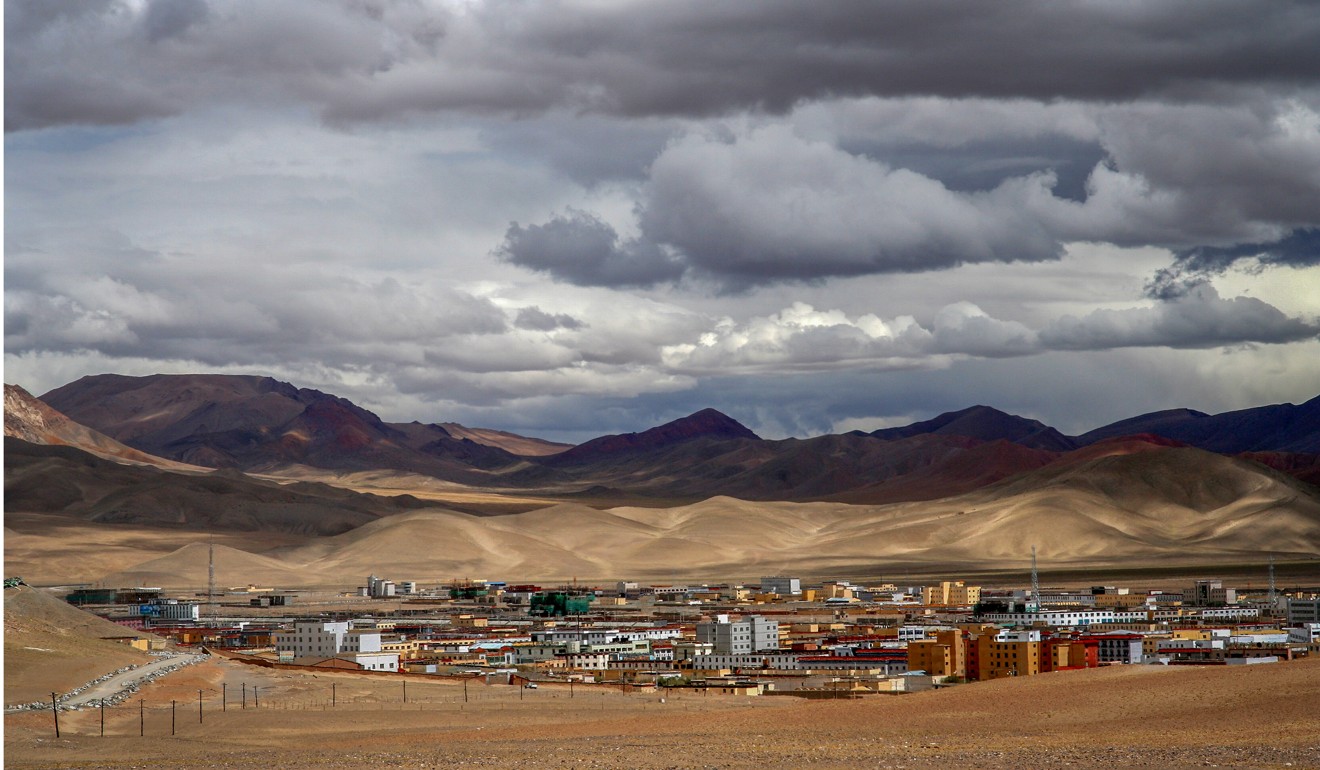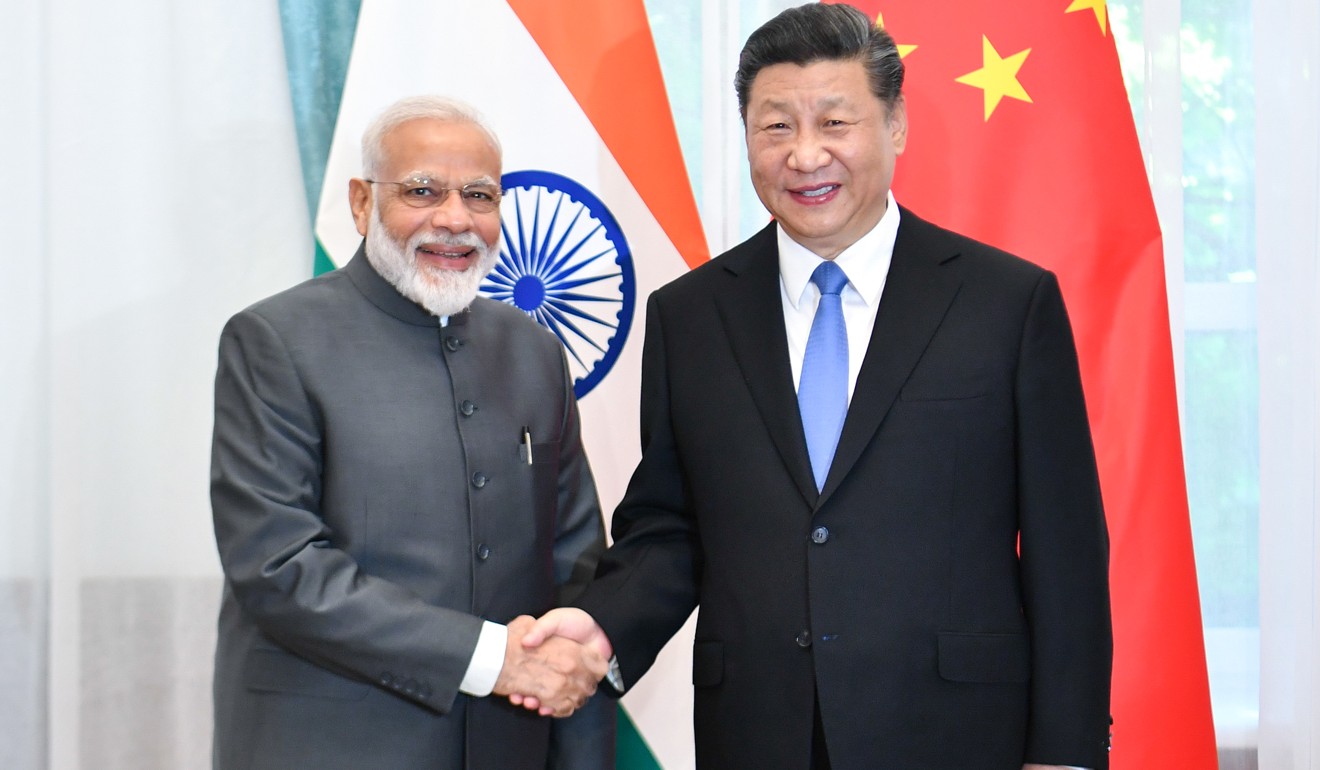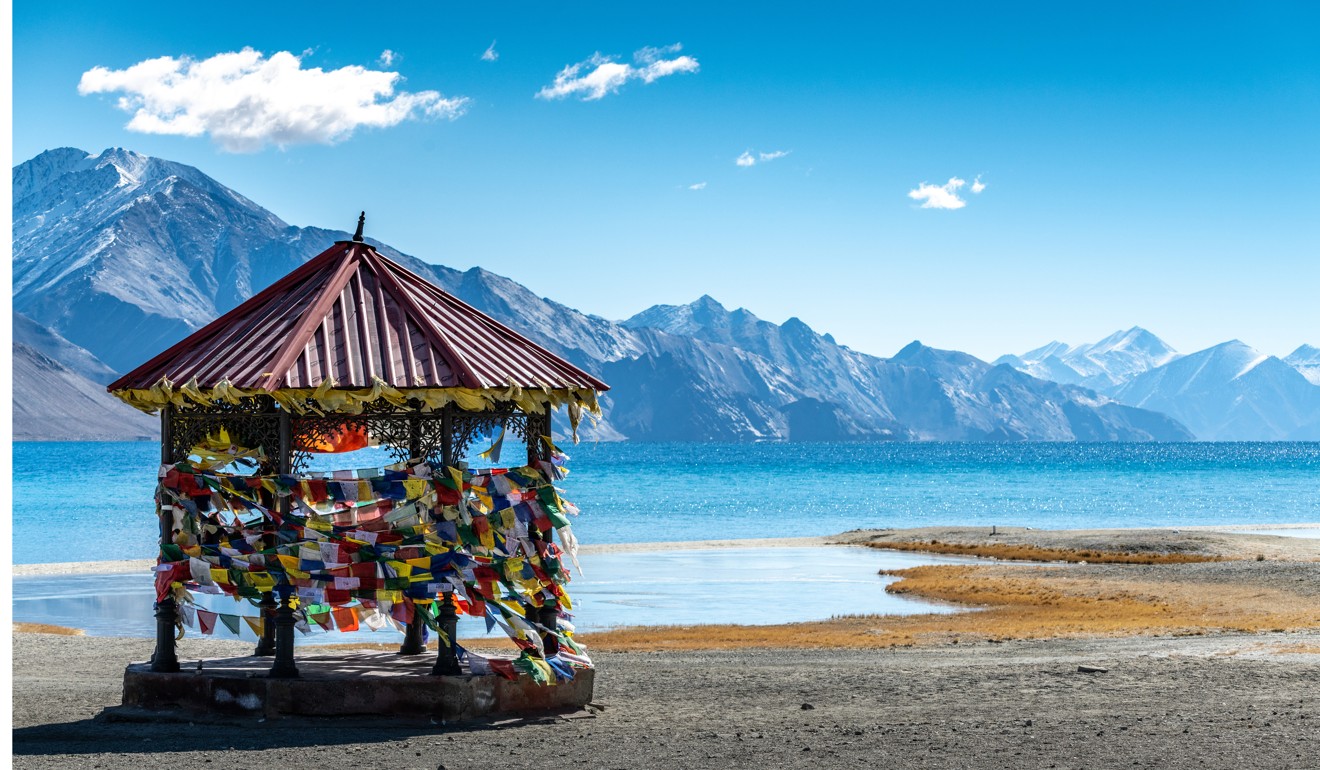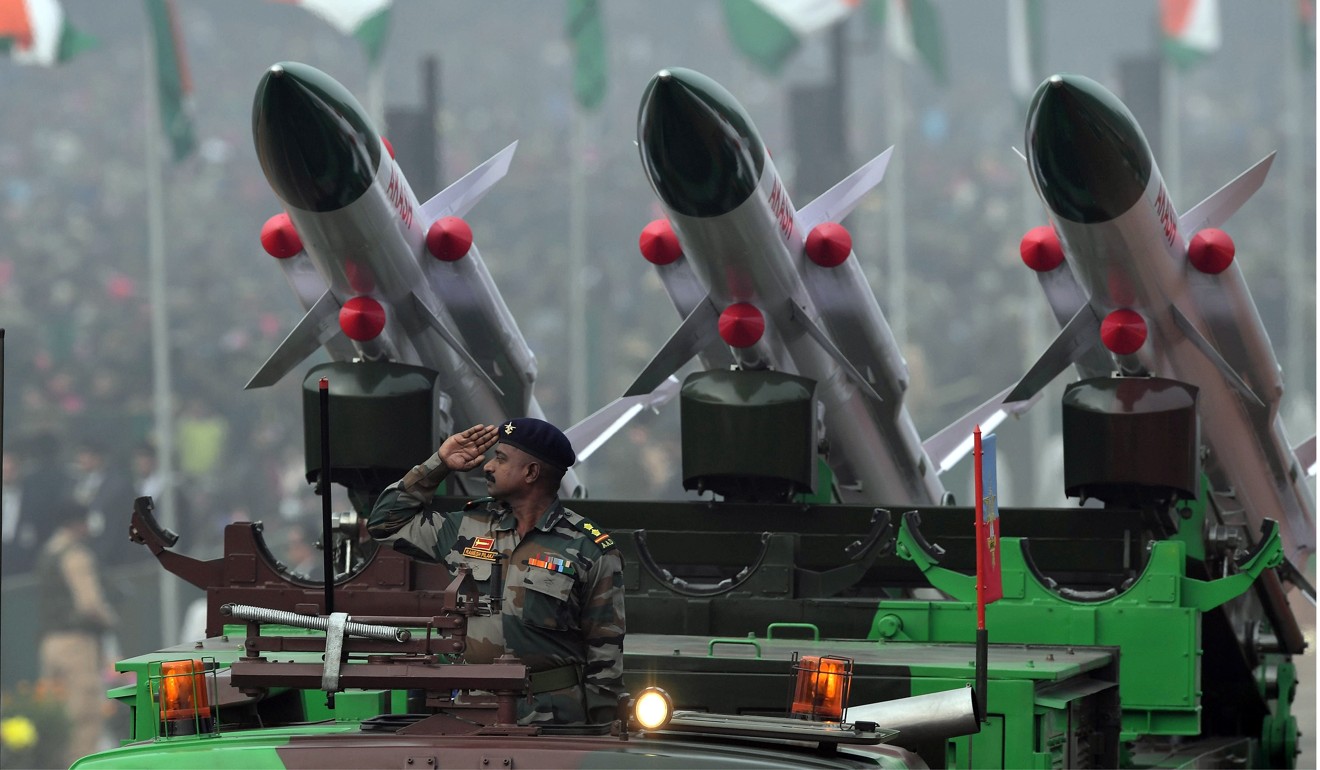
Kashmir dispute and India’s Himalayan war games jeopardise prospects for Modi-Xi summit
- Beijing and New Delhi are supposed to be enjoying a resurgence in relations as their leaders prepare for another summit next month, but the reality is less rosy
- A border stand-off, the dispute over Kashmir and India’s military games in the Himalayas mean Modi and Xi could find themselves back at square one
Indian and Chinese soldiers came face to face this week in a tense confrontation at their disputed Himalayan border, barely a month before a scheduled “informal summit” between President Xi Jinping and Prime Minister Narendra Modi.
The Chinese forcibly stopped an Indian military patrol on Wednesday at the northern side of Pangong Lake in the disputed area of Aksai Chin, much of which is controlled by Beijing but claimed by New Delhi.
“There were some scuffles and both armies rushed in reinforcements, but within a day it was resolved at a meeting of senior officers,” said an Indian colonel in the region on condition of anonymity.
Retired lieutenant general John Mukherjee, a former chief of staff for India’s Eastern Command, who now heads defence and foreign affairs think tank Ceners-K, said a pattern had emerged to Chinese intrusions.

“They usually happen when their senior leaders are visiting India. This happened during the visits of Premier Li Keqiang in 2013 and President Xi Jinping in 2014,” he said. “We need to check out what signal they are trying to send.”
Wednesday’s face-off comes after more than two years of relative quiet since a 73-day confrontation on the Doklam plateau at the China-India-Bhutan tri-junction of borders in 2017.
This flare-up was resolved with the personal intervention of Modi and Xi at a meeting on the sidelines of a summit for emerging economies in the southern Chinese city of Xiamen, and was followed up with another summit between the pair described as informal and “warm” in Wuhan last year.
The leaders agreed to issue clear directives to their armies on how to peacefully manage the disputed border as special representatives for the two nations try to negotiate a final settlement.
Modi and Xi are scheduled to meet again in another informal summit in October, this time in India.
The venue is likely to be changed from Varanasi, the Hindu holy town Modi represents in parliament, to Mamallapuram, a coastal temple town in the country’s south, although no reason has been given.
But much uncertainty now surrounds the meeting following India’s sudden reorganisation last month of its territory in the disputed Kashmir region and because of plans by Delhi to hold an elaborate military exercise in the Himalayas.

On August 5 India scrapped the special status and autonomy it had maintained over seven decades for the state of Jammu and Kashmir. The government imposed a strict lockdown on the region and a telecoms and media blackout along with a curfew. The state is one of two that make up the volatile Himalayan region. Pakistan controls the other, but both countries claim the area in its entirety.
Islamabad condemned the change and appealed to global powers to do the same. But China backed its ally Pakistan and raised the issue at a United Nations Security Council meeting. India responded by saying it opposed “foreign interference” in its internal affairs and described Kashmir as “an integral territory of Indian union”.
It is unclear whether these differences led to the cancellation of a visit to Delhi scheduled for this month by Chinese foreign minister Wang Yi, but Wang did find time this week to call on the Pakistani capital Islamabad to reiterate the need for “solving the Kashmir problem in accordance with UN resolutions and bilateral agreements”.
A joint statement issued by China and Pakistan setting out their position was refuted by New Delhi. Foreign office spokesman Raveesh Kumar said India was “resolutely opposed to any moves by other countries to change the status quo in the region”.
Nevertheless, Indian foreign minister S. Jaishankar tried to ease tensions by suggesting to Wang during a recent visit to Beijing that the Kashmir reorganisation “did not involve any fresh territorial claims” by Delhi.

But he was undone by home minister Amit Shah who told the Indian parliament: “I will not rest in peace until India regains our territories in Pakistan-held Kashmir and China-held Aksai Chin.”
Beijing reacted sharply to Shah’s comments, reminding Delhi of an “adverse impact” on their ongoing border talks.
China also appears peeved by Indian plans to hold a major military exercise named Operation Himvijay, or Conquer Himalayas, in October, around the time Xi is expected to be in India.
Military officials have said it will involve 15,000 soldiers in three new Integrated Battle Groups backed by medium artillery, tanks, and heavy duty air transport and fighters. The purpose is to test “India’s offensive capabilities”.
“The military exercise is perhaps a signal to the Chinese that though India is keen on strengthening economic ties, it will brook no pressure on its borders and is militarily ready for any eventuality,” said Binoda Mishra, director of the Calcutta-based Centre for Studies in International Relations and Development, which has been involved in years of informal dialogue with Beijing.

The Indian army said it had not formally informed the Chinese of the exercise because it would be held “far away from the Line of Actual Control” – a demarcation between Indian and Chinese-controlled territory. One officer said it had been planned for five months but was only being carried out now after clearance from the government. The drills must be completed before Himalayan passes become blocked in the winter.
The logic for staging the exercise around the time of the Modi-Xi summit remains unclear, and the decision could jeopardise efforts by the two leaders to improve frosty bilateral ties.
One former Indian diplomat, who declined to give his name but who has a long history of dealing with China, said: “I don’t expect any breakthrough at the summit.
“I will be happy if the process of rapprochement started at Wuhan is saved.”

